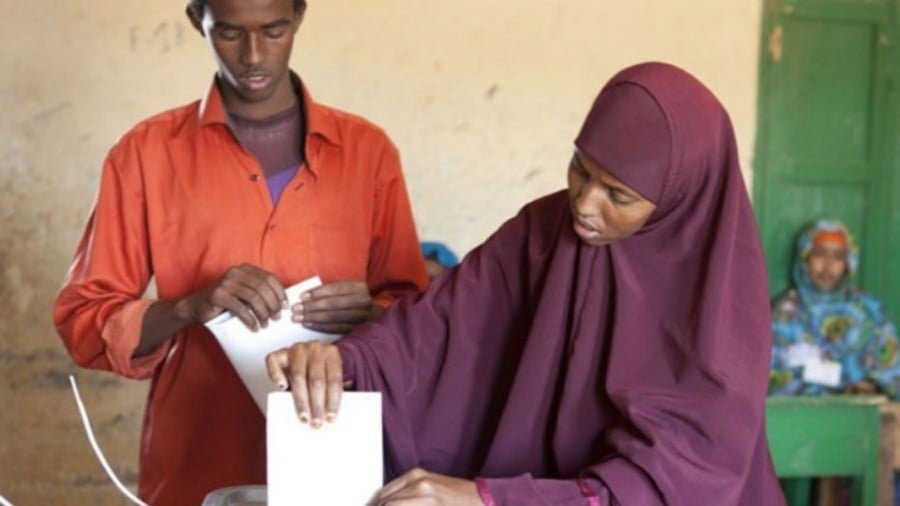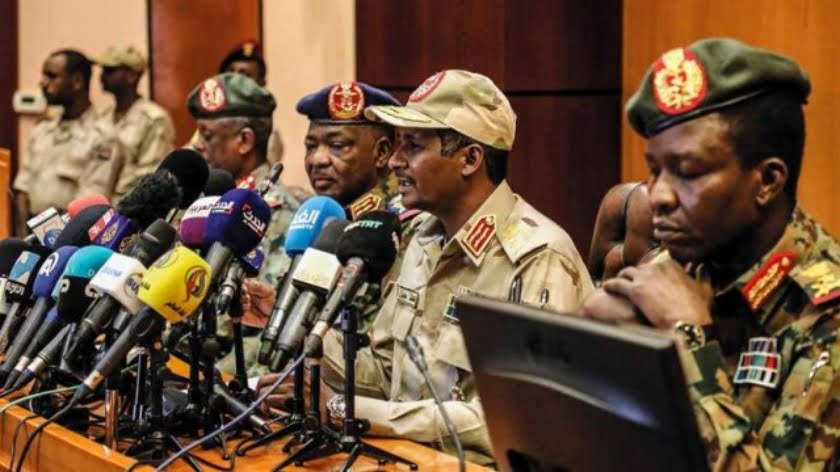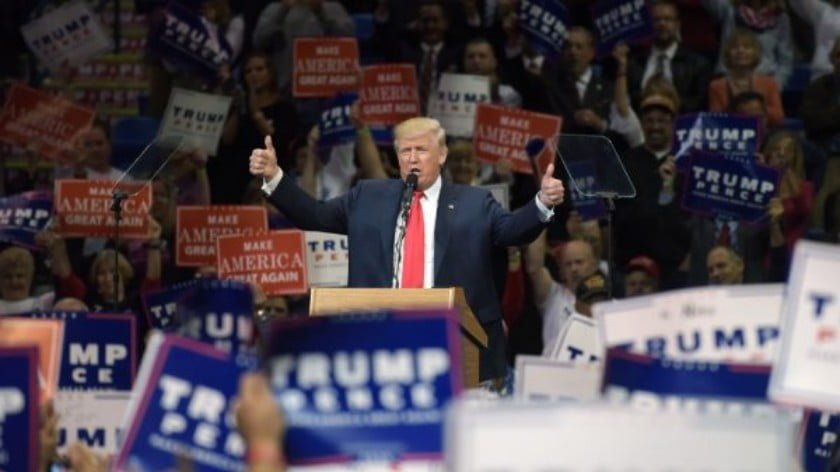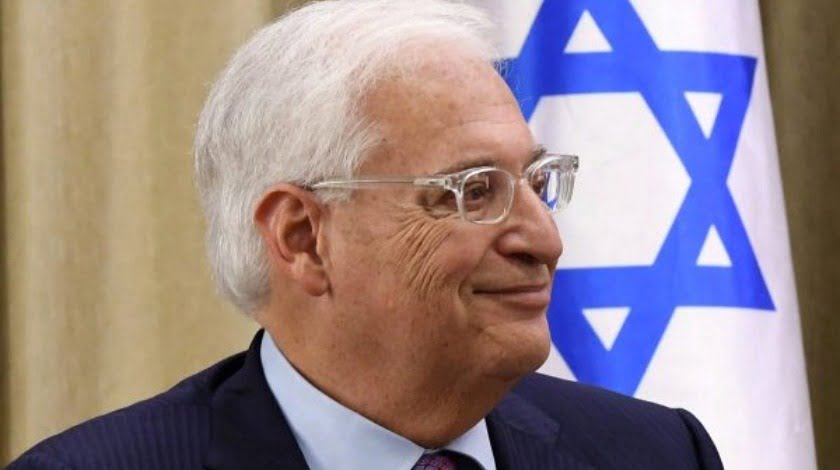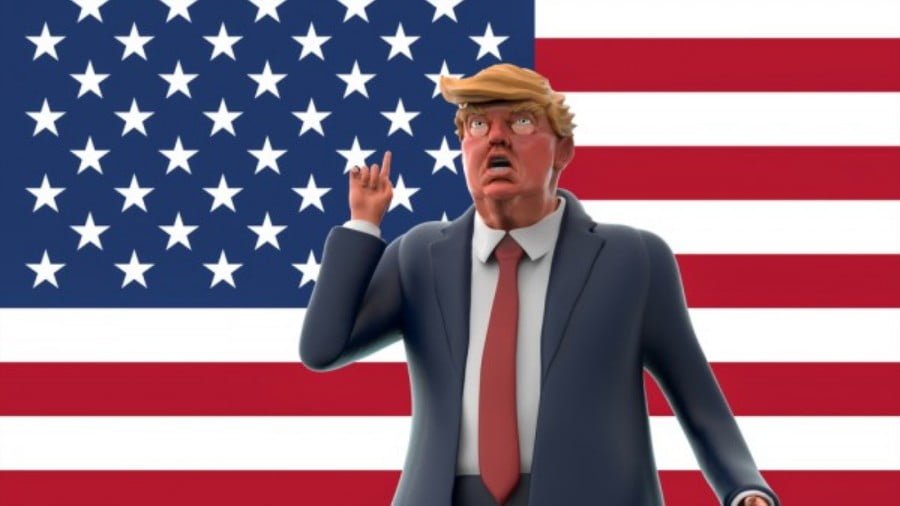Instability in Somalia Continues Despite Years of Western Interventions
A decades-long effort by the United States and other western states to remake the Horn of Africa nation of Somalia in their images has only resulted in further political fragmentation and economic underdevelopment.
The current President Mohamed Abdullahi had attempted through the parliament based in the capital of Mogadishu to postpone the elections in order to extend his term of office for another two years.
This attempt by the president had triggered violent clashes within the Somalian National Army (SNA) in the capital. Such divisions only compound the already limited capacity of the armed forces to control the situation outside Mogadishu where the al-Shabaab guerrilla organization controls large swaths of territory in the central and southern regions of the oil-rich country.
Since late 2006, the U.S. State Department, Central Intelligence Agency (CIA) and the Pentagon has attempted to engineer yet another political dispensation which would establish Somalia as a beachhead for imperialist interests in East Africa. These machinations have been carried out utilizing proxy military forces from Ethiopia, Kenya, Uganda, among other states funded and trained by the Pentagon and allied NATO governments.
Eventually by 2007, after regular surveillance and bombing campaigns by the Pentagon and the Royal Air Force (RAF), the African Union Mission to Somalia (AMISOM) was deployed with up to 22,000 troops from regional and contiguous states. AMISOM has served as the underpinning of the security apparatus of the federal dispensation while the U.S. has deployed drones, a CIA field station along with soldiers from the U.S. Africa Command (AFRICOM). Additional training and supplies are provided by the EU as well as financial contributions.
AMISOM has threatened to withdraw from Somalia on several occasions over the last few years calculating that the Somalian government and SNA forces were in a position to stabilize the country. Nonetheless, the AMISOM troops have remained while under the former U.S. administration of President Donald Trump, a larger number of AFRICOM soldiers were deployed in the so-called “anti-terrorism” efforts.
Trump had ordered the withdrawal of the 700 Pentagon troops officially operating in Somalia where they are said to be there assisting the SNA. However, no announcement has been made by the current Democratic President Joe Biden on whether AFRICOM has been withdrawn.
Since the month of February, conflict in Somalia has intensified due to the stalemate between the president, opposition elements and the military. Al-Shabaab has taken advantage of these divisions by moving into areas previously under the control of the central government in Mogadishu.
According to a recent article on the domestic situation:
“Somalia is dependent on donor funding, with domestically generated revenue contributing less than half of its annual budget. The government has received less than half of the 100 million euros ($120 million) the EU pledged in a three-year budget-support program that ends this year. The government has warned there’s a risk of increased unrest if funding gaps leave it unable to cover its wage bill.”
This dependency on foreign capital and military forces is not only the principal weakness of the federal government in Mogadishu in that such a scenario is a by-product of neo-colonialism in modern day Africa and other geo-political regions. Successive Somalian administrations since the advent of national independence in 1960 have been compelled to address the same question. How can a post-colonial state build a genuinely independent and sovereign entity while still relying upon the financial institutions, multi-national corporations and western military structures for assistance?
What is at Stake for Imperialism in Somalia?
As was alluded to earlier, Somalia has been cited as a potentially large-scale oil producing country which is strategically located with sections of the country on the coast of the Indian Ocean in East Africa. In fact, the entire Horn of Africa and Eastern regions of the continent has undergone tremendous explorations over the last two decades which indicate the presence of enormous energy resources including offshore oil and natural gas.
A November 2020 article published by Africa Reports says of the energy prospects that:
“Somalia fits the bill for bona fide frontier status. It is relatively unexplored, and only one offshore well has been drilled to date; Seismic surveys in 2014 and 2015, shot respectively by Soma Oil and Gas and Spectrum, were the first to map the deep offshore. Exploration studies have also occurred onshore in Somaliland in recent years. These included 2D Seismic and macro-seepage studies in 2018 and 2019 by Genel & RAK Gas. Moreover, the area shares similar geological characteristics with Kenya, Tanzania and Mozambique, where giant discoveries have been made in the past 20 years.”
Northern Mozambique has been the center of the extraction of natural gas in the Cabo Delgado province. Several companies involved in Liquified Natural Gas (LNG) production are inside Mozambique for the purpose of exporting these resources internationally.
Yet in Mozambique there has been the advent of an insurgency which has disrupted LNG production in Cabo Delgado by launching attacks which have killed and displaced thousands in the region. The Southern African Development Community (SADC), the 16-member regional organization which Mozambique is a founding state, has recently committed to assisting the country in their internal struggle against the rebels, who ironically enough, call themselves al-Shabaab. Although there has not been any definitive link between the rebels in Somalia and those in Mozambique, both countries are being disrupted by similar formations which claim to be Islamic in orientation.
Al-Shabaab in Somalia, grew out of the Islamic Court Union (ICU) which initially arose as an opposition movement to the ongoing attempted dominance of the U.S. during the mid-2000s. Al-Shabaab, meaning the youth, were a part of the resistance to the interference by Washington in Somalia internal affairs.
Nevertheless, in subsequent years, the ICU entered the political process in Somalia. Al-Shabaab was reported to have continued the armed struggle against the central government while declaring allegiance to al-Qaeda. Later another faction would emerge which claims to be aligned with the Islamic State of Iraq and Syria (ISIS).
No Stability Under Neo-Colonialism
At present, absent of a national unity government which can maintain stability and provide resources for the population, the U.S. will continue to maintain the neo-colonial arrangements in Somalia. The continuing insurgency and the factionalism within the federal government based in Mogadishu only provides a rationale for the ongoing presence of AFRICOM and other imperialist military forces.
The United Nations Security Council (UNSC) in March of this year reauthorized the contingents of AMISOM troops in Somalia. The document presented and signed indicated that over 19,000 AMISOM troops will remain inside the country pending the ability of the western-backed administration to resolve the internal situation.
A press release from the UNSC emphasizes that:
“Recognizing the role of the African Union Peace and Security Council, the Council took note of its request that the African Union Commission finalize its independent assessment and urged it to mandate, in May 2021, an AMISOM that ‘supports and enables’ the implementation of the Somalia Transition Plan, implementing the necessary steps to ensure continued delivery of support to Somali security efforts in 2022. More broadly, the Council underlined the need for Somalia and its partners to take a ‘coordinated and cohesive’ approach towards Somali-led political and security reforms to ensure the transition of security responsibilities agreed by the Somali authorities, the Somali security forces, and AMISOM from the outset.”
However, until the people of Somalia take control of their own political destiny there is the possibility of U.S.-UNSC coordinated indefinite occupation of the country. The presence of western-backed forces in Somalia can only benefit the multi-national energy corporations and the banks which finance them. Somalians need more than anything a political and economic system which serves the people. This will only take place when western interests are forced out and the masses take control of their land, resources and waterways.

